Last Updated on May 28, 2023 by Ellen
A routine check up, a biopsy, a cancer diagnosis, the hunt for the right doctor, and then, a bilateral mastectomy. These events could have happened to a woman anywhere in the world. For me, they happened mostly in Croatia.
So, what was that like? To have a bilateral mastectomy in a foreign country? Well, likely the same as anywhere else on the planet — it sucked.
That said, my experience was been relatively easy, cost effective, and without complications. All things considered, it was a good experience – if one can call losing her breasts a good experience.
Bilateral mastectomy
Mine was in Croatia
The doctor drew lines on my breasts with a marker to indicate impending incisions. I met with the anesthesiologist and surgical nurses. I put on compression stockings. I kissed my husband Tedly goodbye.
I prayed as I walked into the operating room of a private-pay clinic in Zagreb, Croatia’s capital. In the U.S., patients typically are rolled in on a gurney.
I was out less than two hours. I woke up in the recovery room. I had an IV with light pain meds. I was not too groggy. In fact, I was rather clear-headed. I had gauze taped over my chest. My breasts were gone. I had one post-surgical drain on each side of my body.
I was on a hospital bed, adjusted at a 45-degree angle. I still wore the compression socks they gave me before surgery. The nurse checked on me, made sure I was comfortable, told me to press the buzzer by my bed if I needed anything, then closed the door behind her. I had about 30 minutes of quiet time, alone. Then Tedly was allowed to see me. The relief he felt was evident.
After a short visit, he left and I slept off and on through the night. The nurse helped me to the bathroom once. In the morning, I started walking slowly around the clinic. Tedly returned after my breakfast for another visit.
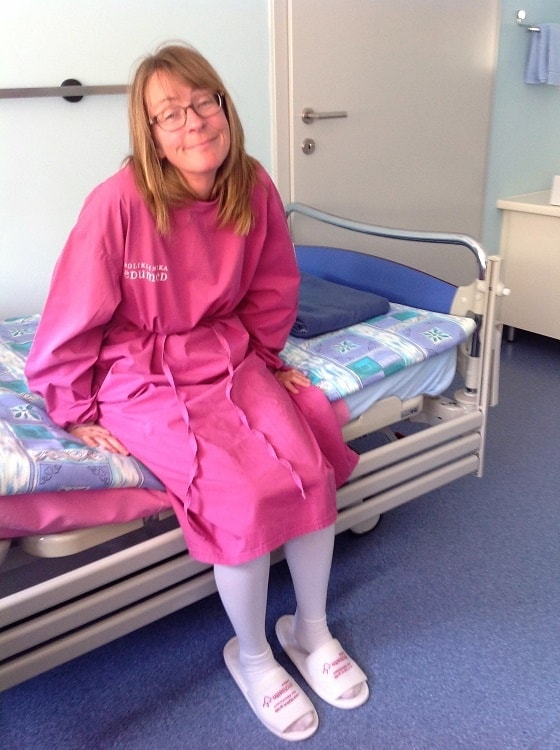
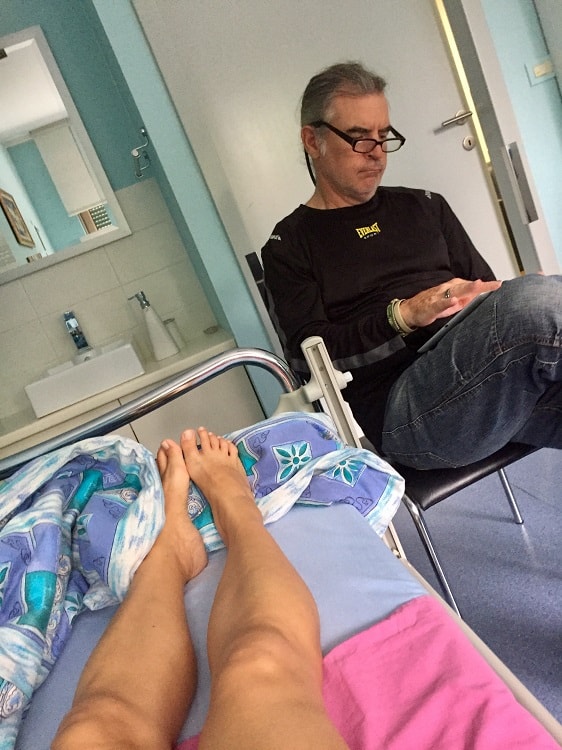
I stayed into the afternoon, saw the doctor again, had my drains removed — yes removed the next day — and then I left the clinic nearly 24 hours after surgery.
That’s the short version. It’s an emotional experience for any person who has an amputation. It was either my breasts or my life, and so acceptance was the answer.
The rest of this post will cover the big differences between a mastectomy in the U.S. and Croatia. I helped my mom through her mastectomy and about two weeks of her recovery, which included doctor visits, so I have a decent handle on the basic procedure back home.
Differences between Europe and the USA
Aside from cost, the post-surgery drains were the biggest procedural difference in having a bilateral mastectomy in a foreign country.
- In the U.S., it’s standard practice to remove drains when the fluid level is under 30 ml for a full day.
- In Croatia, and much of Europe, it’s standard to have the drains removed if the fluid level is under 50 ml in a 24 hour period.
After 21 hours, my left drain was at roughly 20 ml, my right drain was right around 50 ml. The left drain was sure to come out. The doctor believed the infection risk outweighed the benefit to keeping in the right drain – so he took them both out.
This was incredibly lucky for me! Most women in the U.S. complain about the drains as being the most physically bothersome part (aside from losing their breasts in the first place). The drains I had were different from what most American women get.
- Drains in the U.S. tend to be relatively thin, pliable plastic tubes that take bodily fluid into a squeeze cup, which reaches approximately to the hip area. This cup could be placed into an inner ‘pocket’ in mastectomy clothing.
- My drains had thicker, stiffer tubes that came out of my body, extended to the floor and dumped into containers like liter bottles that rested on the floor. I picked up the bottles by the thick tubes and carried them when I walked anywhere. There was no way these were going to fit into a “pocket”.
WARNING: I will include pictures, but they are gross.
If you don’t want to see my post-surgical drains, quickly scroll down beyond the lines of dots to continue reading.
…….Start scrolling fast if you don’t want to see the pictures——….
………………………………………………………………………………….
………………………………………………………………………………….
………………………………………………………………………………….
………………………………………………………………………………….
………………………………………………………………………………….
………………………………………………………………………………….
………………………………………………………………………………….
………………………………………………………………………………….
………………………………………………………………………………….
………………………………………………………………………………….
………………………………………………………………………………….
………………………………………………………………………………….
………………………………………………………………………………….
………………………………………………………………………………….
………………………………………………………………………………….
………………………………………………………………………………….
Here are pictures——————————————–>>>
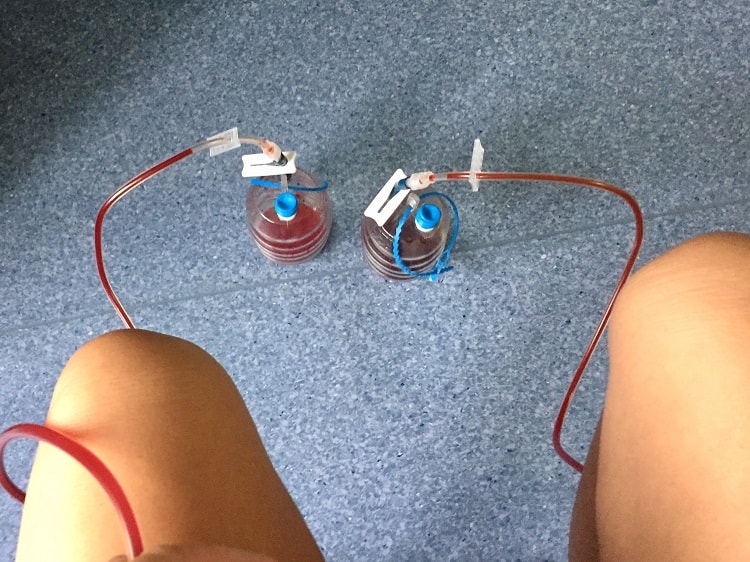
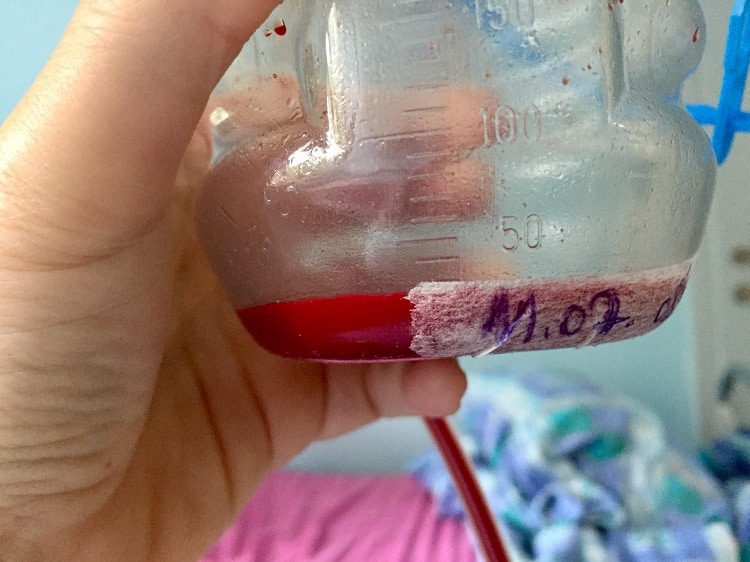
………………………………………………………………………………….
………………………………………………………………………………….
………………………………………………………………………………….
………………………………………………………………………………….
………………………………………………………………………………….
………………………………………………………………………………….
………………………………………………………………………………….
………………………………………………………………………………….
………………………………………………………………………………….
………………………………………………………………………………….
………………………………………………………………………………….
………………………………………………………………………………….
………………………………………………………………………………….
………………………………………………………………………………….
………………………………………………………………………………….
………………………………………………………………………………….
Ok, back to the writing part.
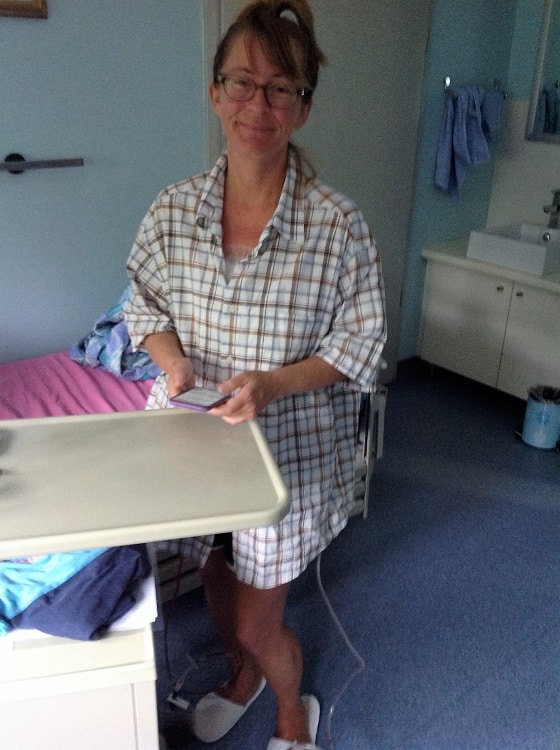
More differences with a bilateral mastectomy in a foreign country:
- Showers/drains
- Back home, women often can’t shower for days or weeks because of the drains.
- Abroad, I was able to shower almost immediately with no drains (as long as I didn’t stand under the stream of water with my waterproof bandages).
- Where mastectomies are performed
- In America, most mastectomies are done in a hospital.
- In Croatia (and other countries), mastectomies can be done in a private-pay clinic.
- Hospital/clinic stays
- In the States, women are sometimes sent home from the hospital the same day. If they are kept overnight (or longer), they share a room and nurses with other patients.
- In Croatia, I was placed in an overnight recovery room that I had to myself – and – I had my own nurse all night and into the next morning. Additionally, I could have stayed another night – the decision was up to me. (I didn’t want to.)
- Pain meds
- In the U.S., sometimes (not always) women are prescribed heavy pain meds.
- In Croatia, I had a prescription for Ketonal, which is a tad stronger than ibuprofen and often used after surgeries.
- Surgery scheduling
- Back home, surgery is often scheduled for weeks in advance for a DCIS diagnosis.
- In my Croatian private-pay clinic, my appointment was secured six days in advance. (And good thing, because eventually, an invasive tumor was found.)
The cost — the last big difference
Most American women have health insurance so their insurance companies negotiate their bills down. (Women without insurance pay more, but that’s another story.)
The most recent government study on mastectomy cost is several years old, so instead, I used healthcarebluebook.com to get a rough estimate.
Depending on your zip code, and what your doctor and hospital charge, the price varies from $15,000 to $50,000 for a single mastectomy.
The biggest cost in that website’s breakdown is for the hospital, which can charge tens of thousands of dollars for one night. Surgeons only charge around $2,000 for their actual work – more or less.
Remember when I said I could have stayed in the clinic one more night if I wanted to? The cost would have been another $200. It would have been for the same room with a private nurse.
In the U.S., an extra night, if deemed necessary by the doctor, might have cost another $10,000 for a shared room and shared nurse among 10 patients. (And many hospitals are tax exempt, but that’s another story.)
The total cost for my double mastectomy without reconstruction in Zagreb at a private-pay clinic was $3,500. Return visits for bandage changes and doctor checks were included in the price, and so was the basic pathology examination of my removed tissue.
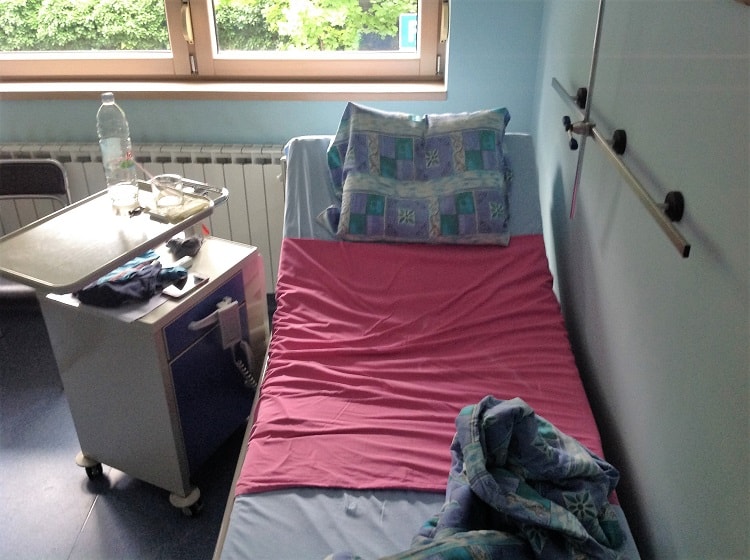
One more difference I should mention. In Croatia, we had to pay for the surgery up front, before those incision lines were drawn on my breasts. In the U.S., mastectomies are billed to insurance companies and paid later — after surgery.
My breasts or my life
You could say Dr. Stanec is one of the people who helped save my life, based on the surprise invasive tumor that was picked up on the final pathology report. (More on that in the next entry.)
I wish I had not had to have this amputation, of course. I mourn the loss of my breasts. But given the alternative – a much higher risk of dying from cancer, I was willing to lose my breasts to prevent a worse illness. After all, there are still places I want to see in this world, and still laughs to have and love to share with Tedly.
I would recommend Dr. Zdenko Stanec to any woman who happens to find herself in Croatia with breast cancer. Don’t take my word for it. His colleagues and former patients recommend him, too.
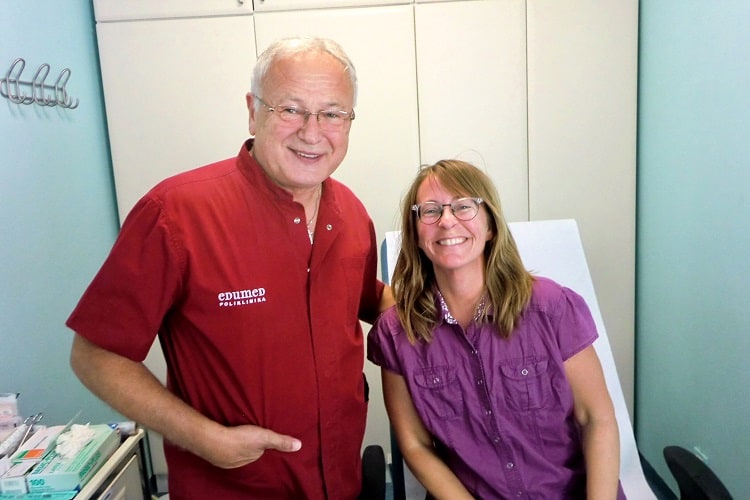
If you missed the story of how I chose Dr. Stanec and his team to have my bilateral mastectomy in a foreign country, you’ll find that part of the story here. You can find a link to his clinic in Zagreb here.
MEDICAL DISCLAIMER
The information contained in this blog is not intended to be used for medical diagnosis or treatment. It should not be used in place of the advice of your doctor or other qualified health care provider.
(*As always, this is an independent blog and I get nothing in return for reviews.)
🙂
Related:
Afraid of health care overseas? Don’t be!
Our special guide on global health care shows you:
- 7 easy steps to find the right doctors and hospitals
- Specific price examples for various medical services
- What to know about medical visas
- And more!
We go without travel health insurance, but many of the principles apply to those with coverage.

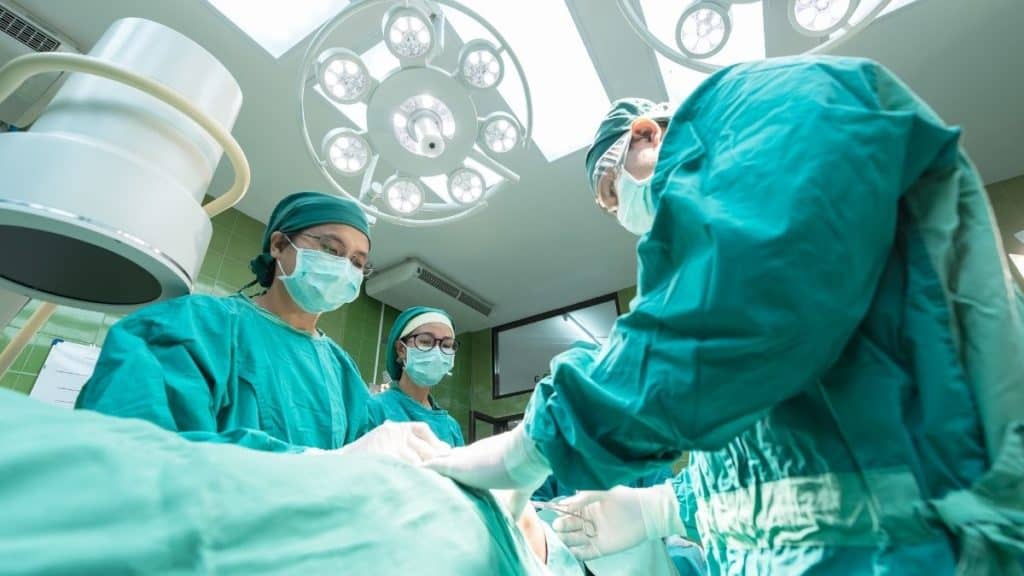
Thank you so much for sharing. One of my biggest fears since I have a medical condition that may worsen with age is not having insurance.
Can you go into how you and your husband went about choosing not to get insurance such as global medical insurance? I’ve read a ton of blogs from US expats and international travelers and it seems a lot of them decide to forgo medical insurance or they obtain insurance. Not having any insurance would make me very nervous.
Did you look at global insurance? If so what was the cost and why did you decide to forgo it?
Hi Arie,
We did look at insurance but it was an expense we were willing to do without. In the beginning of our travels, we were mandated to have Obamacare, since we were in the U.S. more than 30 days. But that’s all changed now.
I will say the only time we took out insurance was a travel policy when we went to a remote area in Southeast Asia without any medical facilities or doctors around. It was limited to evacuation. I can’t remember the company’s name, but there are several if you search. Or, the topic comes up in our Facebook group, Earth Vagabonds.
In the end, we decided to go without because we had traveled enough to see that health care in many, many countries is affordable and reliable. Now, I wouldn’t get a double mastectomy in Bosnia & Herzegovina, and probably not Cambodia. So planning and research is key.
Your fear on a medical condition is certainly understandable. Personally, now that I’m nearly three years beyond surgery, I look at my situation like this: cancer can come back anytime, so I better do the most I can now.
Best wishes,
Ellen
You are amazing! I found your blog searching for contact lens prices in Mexico – you had a post where you bought glasses in Puerto Vallarta, and I clicked on that. I didn’t expect to find an ex-pat breast cancer journey! Thank you for posting your experiences. As a cancer survivor, one of the reasons I’ve decided I could never move overseas is my fear of cancer recurrence and lack of treatment options. Your posts about the surgery and the follow-up checkups you get is really encouraging. You approached this with grace and equanimity.
Thank you so much for your kind words! I decided to share the journey to help other women in some small way. You are not the first survivor to find me, and I hope you won’t be last. Enjoy your time in Mexico – I love it there!
Ellen
Your grace under pressure and ability to write with clarity and humor about what must have been a very stressful experience are inspiring! As a solo woman traveler, a situation like this is my worst nightmare, but it is comforting to read how well you were able to deal with it. Thank you for sharing your story to help other women.
Love you my sweet girl, for all you are & all you will be ♥️ I am blessed & honored to call you my daughter ♥️
Thank you for sharing. Also glad the surgery went well. The differences are so interesting – especially the price. Hope you have a speedy recovery and are soon back on the road.